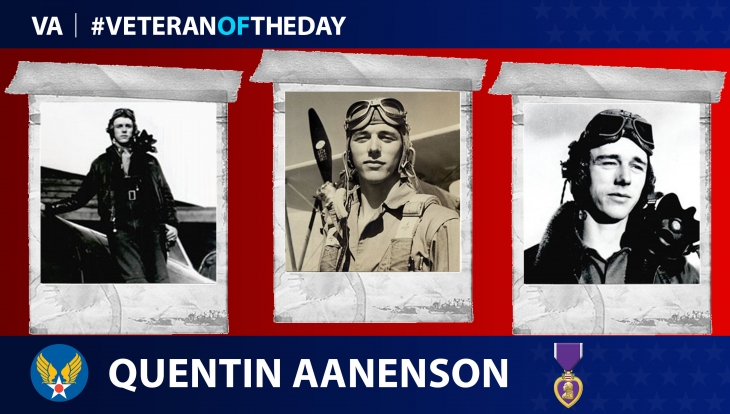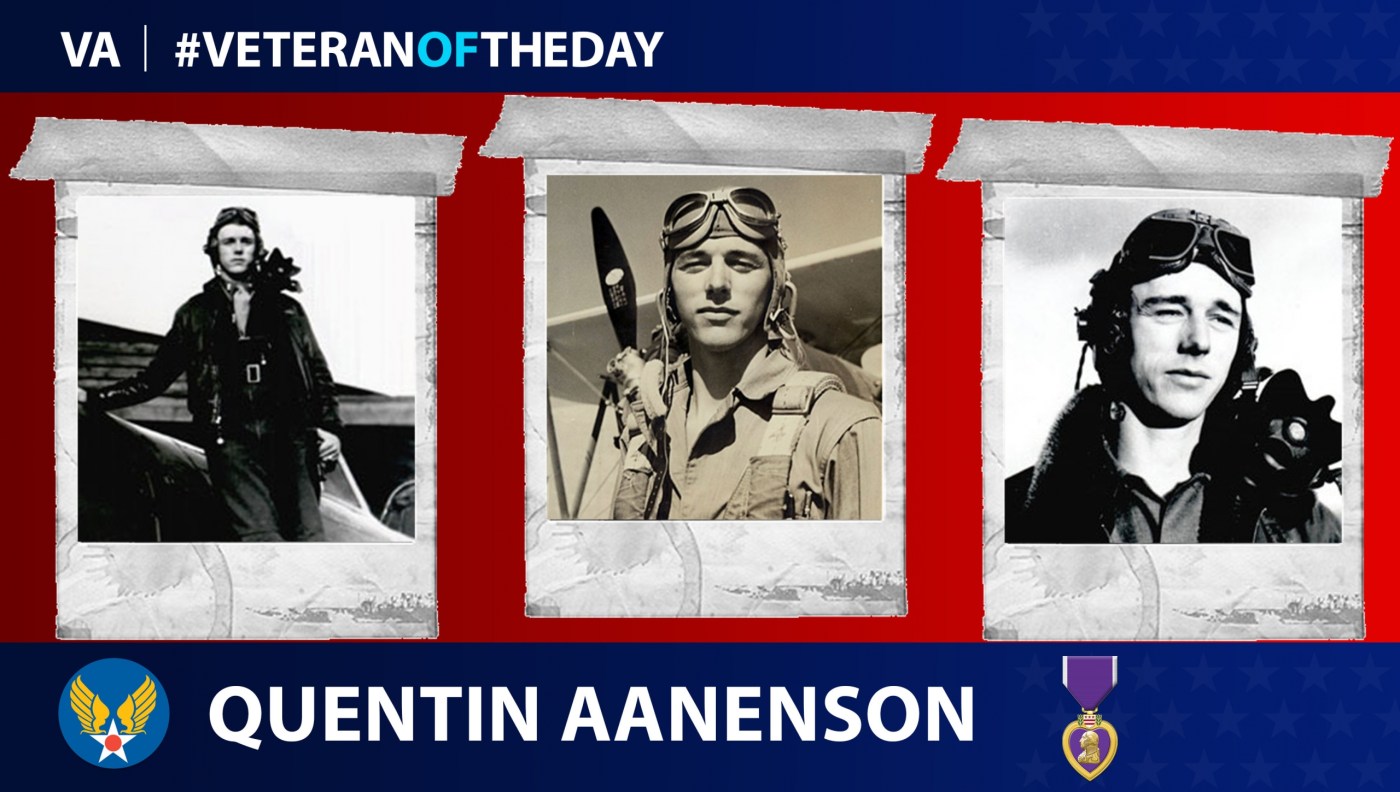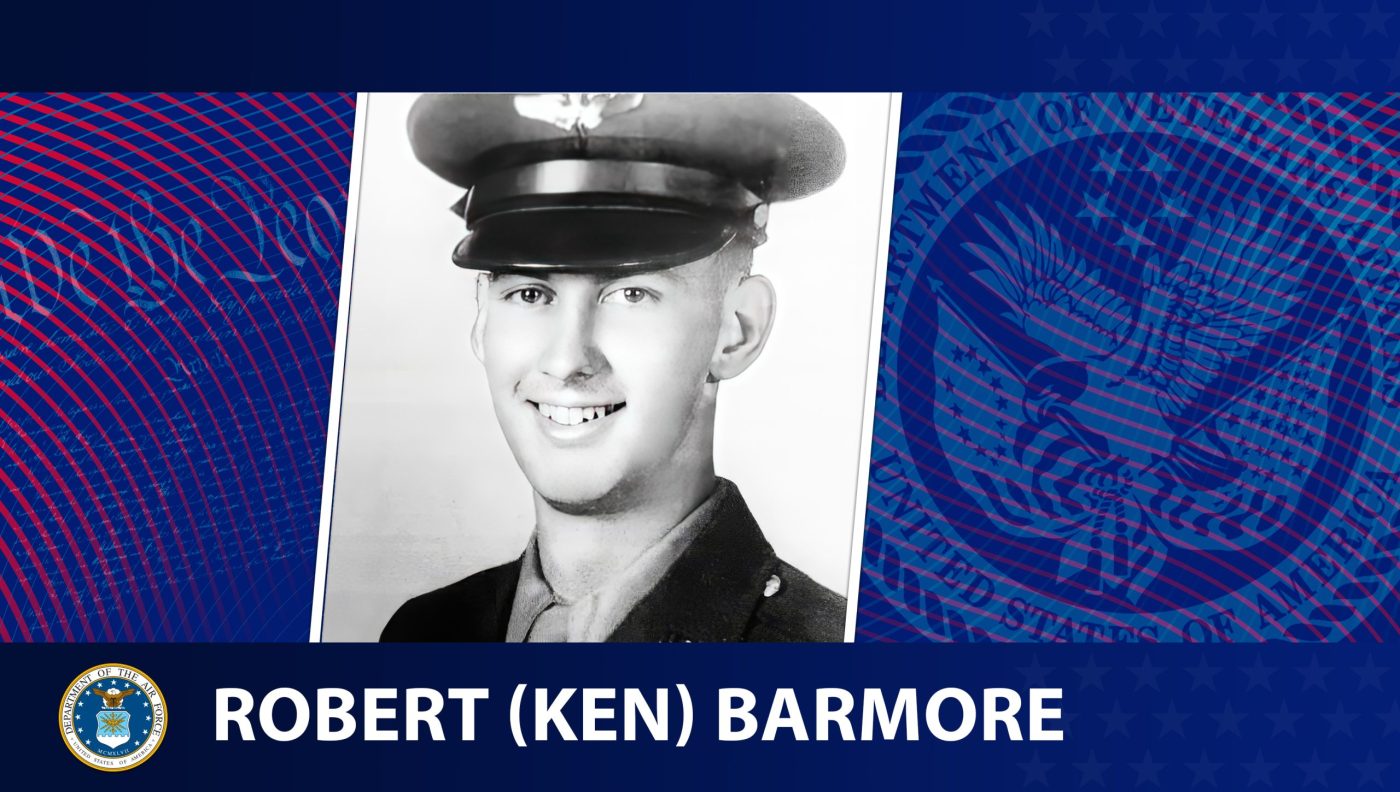
Today’s #VeteranOfTheDay is Army Air Forces Veteran Quentin Aanenson, who served as a fighter pilot during World War II.
Quentin Aanenson was born in April 1921 to Norwegian immigrants and grew up near Luverne, Minnesota. Graduating high school in 1939, Aanenson attended the University of Minnesota for two years before relocating to Seattle to work at Boeing and study at the University of Washington.
After the Japanese attacked Pearl Harbor, Aanenson enlisted in the Army Air Corps with hopes of becoming a pilot. However, he found out that his colorblindness disqualified him from the role. Undeterred, Aanenson repeatedly took the eye test until he memorized it enough to pass. Accepted in 1943, Aanenson completed flight school and training by 1944. In May, he deployed to England with the 336th Fighter Group, 391st Fighter Squadron.
Arriving in June, Aanenson’s first mission was D-Day. Before the Allies landed in Normandy, Aanenson flew his P-47 Thunderbolt to drop bombs on German forces near Pointe du Hoc in France. After D-Day, Aanenson relocated to Normandy, where he continued his combat missions against German forces. In July, Aanenson’s squadron took part in Operation Cobra, where they joined 3,000 aircraft to attack the German forces to advance further into France.
Near summer’s end, Aanenson experienced his first aircraft crash. While on a mission near Vire, France, his aircraft caught fire after anti-aircraft fire hit him. After realizing he could not bail out, Aanenson performed several maneuvers that helped extinguish the fire. This allowed him to return to base, where he crashed and sustained several injuries.
In December 1944, Aanenson took part in the Battle of the Bulge, where he was responsible for coordinating close air support for the Army’s VII Corps.
After completing 75 missions, Aanenson returned to the U.S. for rest and recuperation. Back home, he married Jacqueline Greer, a Louisianan he met before deploying to England. While stationed in Atlantic City, New Jersey, Aanenson expected to go to the Pacific Theater, but the war ended before this could happen.
During his service, Aanenson received a Distinguished Flying Cross, Purple Heart and an Air Medal with nine oak leaf clusters.
Returning to civilian life, Aanenson pursued a career in insurance. Aanenson’s experience haunted him long after the war ended. He rarely discussed his service until after he retired in 1987. During the 1990s, he retold his story in the self-produced film titled “A Fighter Pilot’s Story.” Originally meant as a private account, Aanenson’s film was broadcast over 300 PBS stations after Veterans who viewed it encouraged him to share it with the wider public.
Aanenson passed away in 2008 at the age of 87. He is buried in Arlington National Cemetery.
We honor his service.
Nominate a Veteran for #VeteranOfTheDay
Do you want to light up the face of a special Veteran? Have you been wondering how to tell your Veteran they are special to you? VA’s #VeteranOfTheDay social media feature is an opportunity to highlight your Veteran and his/her service.
It’s easy to nominate a Veteran. Visit our blog post about nominating to learn how to create the best submission.
Contributors
Writer: Raymond Lin
Editors: Annabelle Colton and Theresa Lyon
Fact checker: Giacomo Ferrari
Graphic artist: Brittany Gorski
Topics in this story
More Stories
This week’s Honoring Veterans Spotlight honors the service of Army Veteran Scotty Hasting, who served in Afghanistan.
This week’s Honoring Veterans Spotlight honors the service of Army Veteran Roy Sheldon, who served in 97th General Hospital in Frankfurt, Germany.
This week’s Honoring Veterans Spotlight honors the service of Air Force Veteran Robert (Ken) Barmore, who served in Bennettsville Primary Flight School, Italy and Romania.







We honor the service of Quentin Aanenson